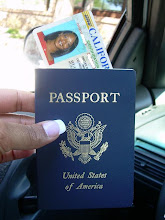Keeping yourself safe and resisting the police state comes down to these simple principles:
1) Non-cooperation: If you talk with the police, you could unintentionally hurt yourself, your friends, or others.
2) Do not consent to searches: Never give law enforcement the okay to examine your pockets, car, backpack, or home.
3) Remain silent: Say nothing except "I'm going to remain silent, and I would like to see a lawyer."
4) Talk to a lawyer: Never take advice from the police, they may try to trick and mislead you.
5) Use trust and intuition: Work only with people with whom you have a history of trust. Without being paranoid, trust your intuition.
Rights During a Police Encounter
In a police encounter these rules will help protect your civil rights and improve your chances of driving or walking away safely. From here on out, we are talking about your legal "rights" guaranteed by law. Though in our view, what you can do and what you can do legally are two different things. All of these rights also apply to minors and non-citizens.
Keep Private Items Out of View
This is common sense: Always keep any private items that you don't want others to see out of sight. Legally speaking, police do not need a search warrant in order to confiscate any illegal items that are in plain view.
Stay Cool & Politely Assertive
Police are well armed and often unpredictable, so remaining cool and calm will keep you safe. Treat them with the caution you would treat a dangerous, wild animal.
Be polite and yet assertive to ensure that your rights aren't trampled on. Some officers may come on heavy if you are not absolutely submissive, but standing up for your rights will keep you safe in the long run, in court when it really matters.
Determine If You Can Leave
You don't have to talk to the police. As soon as an officer approaches you, ask the officer, "Am I free to go?" If you get an answer other than a definitive "No," gather your stuff and leave without another word.
You have the right to end an encounter with a police officer unless you are being detained or arrested. Don't waste time trying to determine your status. Test if you are free to go, and then go. If you aren't free to go, the officer will make it perfectly clear.
Use the Magic Words
If you are detained or arrested, use the magic words:
"I'm going to remain silent. I would like to see a lawyer."
Do not talk to police. Wait to talk to a lawyer representing you. Even casual small talk can come back to haunt you. Anything you say can, and will, be used against you.
Cops have numerous tricks to get you to talk. They can and do use fear, solitude, isolation, lies, advice, playing you against others, and even kindness to get you to cooperate. Don't be fooled. If you need to say anything, repeat the magic words.
Keep in mind the credo: If no one talks, everyone walks. Regardless of what you are told by an investigating officer, you have nothing to gain by talking to the police...and everything to lose.
Refuse to Consent to Searches
Officers seeking evidence will often try to get you to allow them to search your belongings, your car, or your home. Refuse to consent to a search, with the phrase:
"I do not consent to a search."
Usually, a search request will come in the form of an ambiguous statement, such as, "I'm going to ask you to empty your pockets." Answer such requests unambiguously. Repeat as many times as necessary.
You are under no obligation to allow a search. The only reason an officer asks your permission is because he doesn't have enough evidence to search without your consent.
Police officers are not required to inform you of your rights before asking you to consent to a search. If the officer searches you in spite of your objection, do not resist. Your attorney can argue that any evidence found during the search was discovered through an illegal search and should be thrown out of court.
Do Not Try to Bargain
Police officers will often tell you that your cooperation will make things easier for you, and many people hope to be let off easy if they are honest and direct with the police. The only thing it makes easier is the officer's job. Do not let the threat of arrest scare you into admitting guilt. Better to spend a night in jail, than years in prison. Ask to speak with a lawyer, and remain silent.
Where to Go For More Help
If you feel your rights are being violated, hold tight until you can talk to a lawyer. If you don't have your own lawyer the court will appoint the public defender to defend you. For more information about your rights, law education, and what to do if your rights were violated, check out:
| Midnight Special Law Collective | midnightspecial.net | 510-261-4843 |
| ACLU of Northern California | www.aclunc.org | 415-621-2493 |
| National Lawyers Guild | www.nlg.org | 415-285-5067 |
There may also be legal help in your community that will specifically help you if you are a senior, low-income, homeless, or an non-citizen. Ask around in your community.
~ "O" The Touring Empress







This is some good info. When I see cops in the street I get nervous. Dead ass, it's been like that for a while now. I wonder why?
ReplyDelete